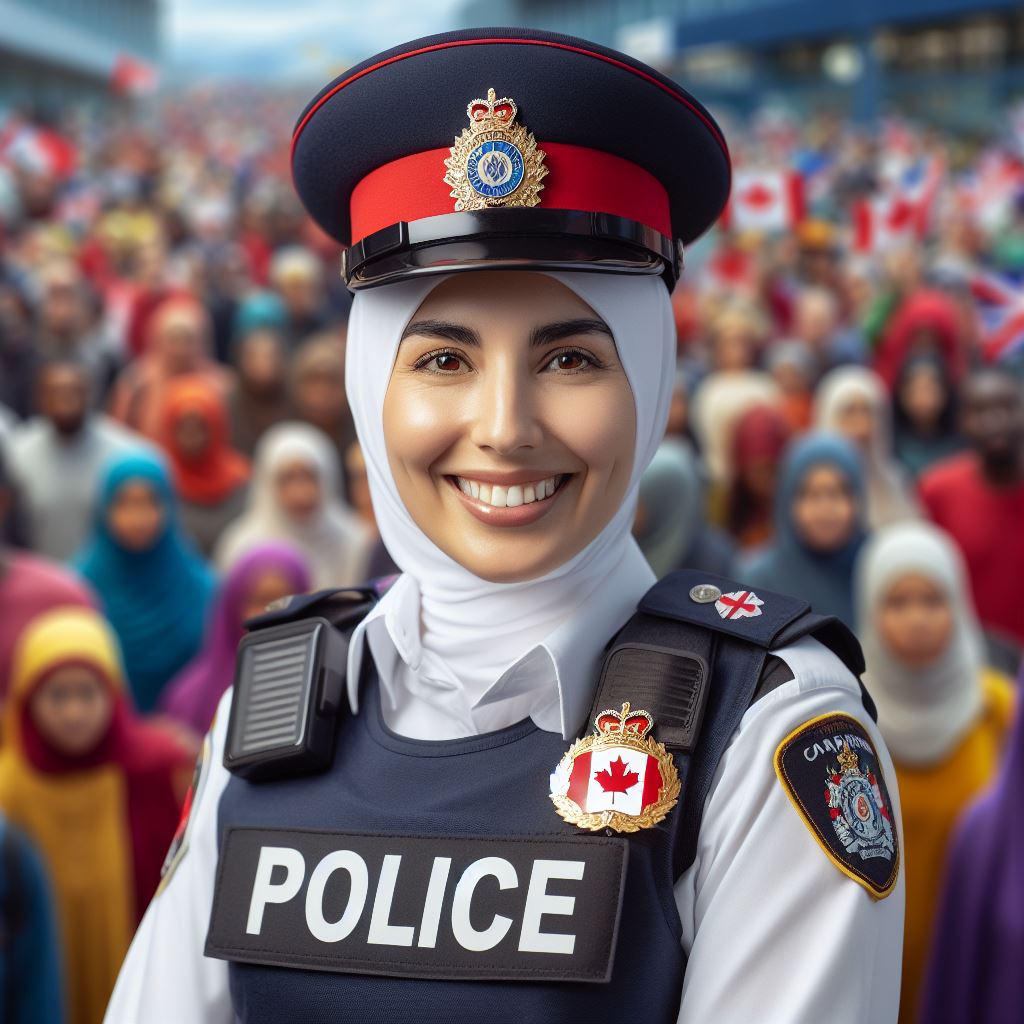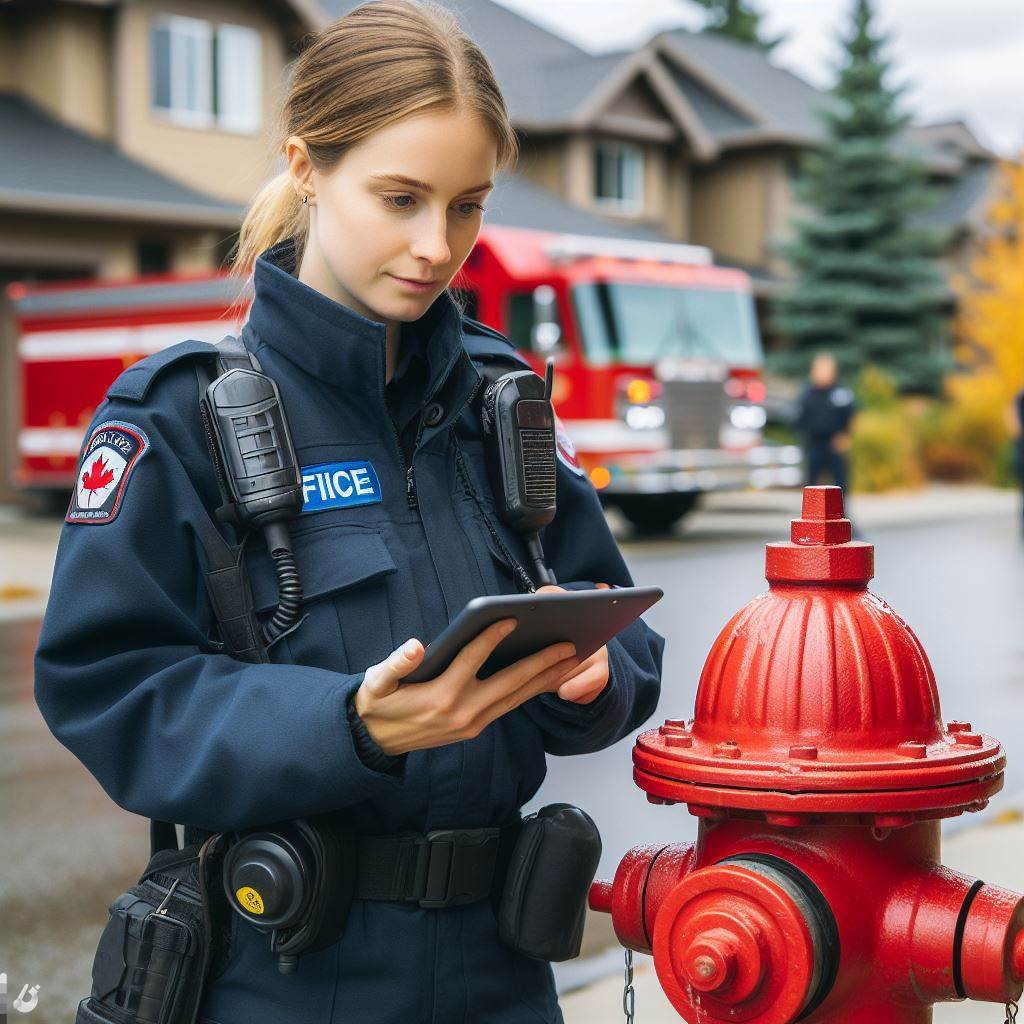Introduction
Let’s explore cultural sensitivity training in policing.
Policing plays a crucial role in maintaining public safety and order, but it is not free from controversy.
A. Brief overview of the topic
Cultural sensitivity training in policing is no longer a luxury but a necessity.
This section delves into why understanding diverse cultures is integral for effective law enforcement.
B. Thesis statement
This blog section explores the importance of cultural sensitivity training in policing and its potential impact on fostering trust and reducing conflicts within communities.
Definition and Importance of Cultural Sensitivity Training
A. Definition of cultural sensitivity training
Cultural sensitivity training is a program designed to educate individuals about different cultures, traditions, and customs to foster understanding and respect.
B. Explanation of its importance in policing
Cultural sensitivity training is crucial in policing as it equips law enforcement officers with the knowledge and skills needed to interact effectively with diverse communities.
C. Its role in building trust and positive community relations
1. Increased awareness
- Cultural sensitivity training enhances officers’ understanding of cultural diversity, promoting empathy and reducing biases.
- By recognizing and respecting cultural differences, officers can avoid misunderstandings and conflicts with community members.
2. Improved communication
- Cultural sensitivity training teaches effective communication strategies in multicultural settings.
- Officers learn how to navigate language barriers and employ cultural context to ensure accurate understanding and convey empathy.
3. Enhanced problem-solving
- Understanding diverse cultures allows officers to approach problems from different perspectives, leading to more effective resolutions.
- Officers can consider cultural influences when dealing with conflicts, ultimately reducing tensions and finding peaceful resolutions.
4. Promoting inclusion and fair treatment
- Cultural sensitivity training emphasizes the importance of treating all individuals equally, regardless of their cultural background.
- By valuing diversity, officers can ensure fair treatment and avoid discriminatory practices within the community.
5. Building trust and positive community relations
- By demonstrating cultural sensitivity, officers can gain the trust of community members, leading to stronger police-community partnerships.
- When officers understand and respect different cultures, community members feel more comfortable approaching them with concerns and information.
6. Establishing legitimacy
- Cultural sensitivity training helps police departments establish legitimacy and credibility within diverse communities.
- When officers demonstrate respect for cultural norms, they are more likely to be viewed as legitimate authorities by community members.
In short, cultural sensitivity training is essential in policing as it promotes understanding, communication, and fairness.
By embracing cultural diversity, police officers can build trust, foster positive community relations, and effectively serve diverse populations.
Read: The Evolution of Canadian Police Uniforms
Objectives of Cultural Sensitivity Training in Policing
A. Promoting Understanding and Empathy towards Diverse Cultures
One of the primary objectives of cultural sensitivity training is to promote understanding and empathy towards diverse cultures.
By gaining insights into different cultural practices, customs, and beliefs, police officers can build trust and rapport with individuals from various communities.
This understanding helps bridge the gap between law enforcement and marginalized communities.
B. Enhancing Communication Skills across Different Cultural Groups
Effective communication is vital in policing, and cultural sensitivity training aims to enhance officers’ communication skills across different cultural groups.
Training modules focus on teaching officers how to adapt their communication style, utilize appropriate language, and interpret non-verbal cues in culturally diverse interactions.
These skills help prevent misunderstandings, de-escalate conflicts, and ensure effective communication between officers and community members.
C. Fostering Awareness of Cultural Biases and Stereotypes
Cultural sensitivity training also aims to foster awareness of cultural biases and stereotypes that may exist within the law enforcement community.
Officers are taught to recognize and challenge their own preconceived notions about different cultures and avoid making assumptions based on stereotypes.
This awareness helps in promoting fair and unbiased policing practices.
D. Developing Strategies to Handle Cultural Conflict Situations Effectively
Another objective of cultural sensitivity training is to equip officers with strategies to handle cultural conflict situations effectively.
Policing often involves responding to incidents where cultural differences contribute to tension or misunderstandings.
Training modules help officers develop skills for de-escalating conflicts, diffusing tensions, and finding culturally appropriate solutions to ensure the safety and well-being of all involved parties.
Essentially, cultural sensitivity training in policing serves several important objectives.
It promotes understanding and empathy towards diverse cultures, enhances communication skills across different cultural groups, fosters awareness of cultural biases and stereotypes, and develops strategies to handle cultural conflict situations effectively.
By incorporating these objectives into their practices, law enforcement agencies can work towards building trust, improving community relations, and providing equitable and respectful policing services for all.
Unlock Your Career Potential
Visualize a clear path to success with our tailored Career Consulting service. Personalized insights in just 1-3 days.
Get StartedThe Need for Cultural Sensitivity Training in Policing
A. Addressing the diverse demographics in Canada
Canada is known for its multicultural society, with a diverse population consisting of various ethnicities, languages, and religions.
Policing agencies must adapt to these demographics to ensure effective law enforcement.
Active engagement with different communities helps build trust, fosters collaboration, and promotes a sense of safety and security.
B. Avoiding unintentional discrimination or racial profiling
Unconscious biases can influence decision-making in policing, leading to unintentional discrimination and racial profiling.
Cultural sensitivity training helps officers recognize and address these biases.
By promoting fairness and impartiality, officers can uphold the principle of equality before the law and avoid unjust victimization based on race, ethnicity, or nationality.
C. Reducing instances of cultural misunderstandings and conflicts
Cultural sensitivity training in policing facilitates better understanding and communication between officers and diverse communities.
Highly diverse neighborhoods can present unique challenges when it comes to law enforcement, with cultural misunderstandings potentially escalating into conflicts or strained relationships.
Education on cultural norms, customs, and values helps officers interpret situations accurately, defuse tension, and prevent unnecessary escalations.
D. Building inclusive policing practices and equitable service delivery
Cultural sensitivity training supports the development of inclusive policing practices and equitable service delivery for all members of society.
By understanding the specific needs and concerns of different cultural groups, police officers can tailor their approach accordingly.
This leads to enhanced trust, cooperation, and collaboration between the police and communities, resulting in more effective crime prevention and resolution.
Fostering an inclusive environment in policing also encourages individuals from diverse backgrounds to consider law enforcement as a career choice, diversifying the police workforce and reflecting the communities they serve.
The significance of cultural sensitivity training in policing cannot be overstated.
It plays a crucial role in addressing the diverse demographics in Canada, avoiding discrimination and racial profiling, reducing cultural misunderstandings and conflicts, and building inclusive policing practices and equitable service delivery.
By investing in cultural sensitivity training, police agencies can ensure that officers are well-equipped to serve and protect all members of society, regardless of their cultural background.
This training contributes to safer communities, improved police-community relations, and a more harmonious society as a whole.
Read: Salary and Benefits of Police in Canada

Components of Cultural Sensitivity Training
A. Education on different cultural backgrounds and traditions
Cultural sensitivity training includes providing education on the various cultural backgrounds and traditions within a community.
B. Training on cultural norms, values, and etiquette
Participants are also trained on understanding and respecting cultural norms, values, and etiquette that may differ from their own.
C. Exercises and role-plays to simulate cross-cultural interactions
To enhance cultural sensitivity, training programs often include exercises and role-plays that simulate cross-cultural interactions.
D. Teaching effective inclusive communication techniques
Cultural sensitivity training enhances police officers’ understanding and awareness of diverse communities through various components:
- Cultural Education: Officers learn about different cultural backgrounds, practices, beliefs, and traditions in their communities.
- Norms and Values Training: Cultural sensitivity training focuses on educating officers about cultural expectations, values, and etiquette.
- Interactive Exercises: Role-plays and simulations help officers apply their knowledge in real-life scenarios, fostering empathy and trust.
- Communication Techniques: Training emphasizes effective and respectful communication, including clear language, active listening, and adapting to diverse needs.
This holistic approach equips officers with essential skills, promoting positive police-community relationships and fostering a more inclusive society.
Read: How Canadian Police Engage with Communities
Challenges and Solutions in Implementing Cultural Sensitivity Training
A. Resistance or lack of awareness among police personnel
- Lack of understanding among police personnel regarding the importance of cultural sensitivity training.
- Resistance due to perceived additional workload and required changes in behavior.
- Solution: Provide clear and compelling reasons for the necessity of training, including real-life examples and success stories.
- Implementation of mandatory training programs to ensure all personnel receive the necessary education.
B. Resource constraints or limited training opportunities
- Limited funding and budget allocations for cultural sensitivity training programs.
- Insufficient staff or trainers to accommodate the training needs of a large police force.
- Solution: Seek external funding through grants or partnerships with community organizations and academic institutions.
- Utilize online training modules or webinars to reach a broader audience and overcome logistical limitations.
C. Collaboration with cultural communities and experts
- Lack of involvement or input from cultural communities can lead to ineffective or biased training.
- Limited access to cultural experts who can provide relevant insights and expertise.
- Solution: Establish partnerships with community organizations, religious institutions, and cultural experts to design and deliver training.
- Regularly seek feedback and engage in dialogue with community members to ensure training content remains relevant and respectful.
D. Continuous evaluation and adaptation of training programs
- Failure to monitor and evaluate the effectiveness of cultural sensitivity training programs.
- Inability to adapt training materials and methods to address evolving cultural dynamics.
- Solution: Implement regular assessments and evaluations to measure the impact of training on officers’ attitudes and behaviors.
- Stay updated on current cultural issues and adapt training content accordingly through collaboration with experts and ongoing research.
In general, implementing cultural sensitivity training in policing comes with various challenges.
However, by addressing resistance, resource constraints, collaboration with cultural communities, and continuous evaluation, these challenges can be overcome.
It is crucial for police departments to prioritize training for their personnel to ensure fair and impartial policing in diverse communities.
Read: Understanding Canadian Police Hierarchy
Success Stories and Impact of Cultural Sensitivity Training
A. Examples of police forces implementing successful training programs
- The New York City Police Department successfully implemented cultural sensitivity training.
- The London Metropolitan Police has seen positive results from their cultural sensitivity training.
- Police forces in Canada, such as the Royal Canadian Mounted Police, have also implemented successful programs.
B. Positive outcomes and improvements in community relations
- Cultural sensitivity training has led to improved trust and cooperation between police and diverse communities.
- Incidents of racial profiling and discrimination have been reduced due to increased awareness and understanding.
- Communities feel more comfortable reporting crimes and cooperating with police investigations.
C. Testimonials from police officers and community members
- Officer Smith: “Cultural sensitivity training has made me more aware of my biases and has helped me serve the community better.”
- Community member Johnson: “I appreciate the effort the police have made to understand our culture and treat us with respect.”
- Officer Martinez: “Building relationships with diverse communities has become easier after undergoing cultural sensitivity training.”
Read: Policing in Canada: Rural vs. Urban Areas
Conclusion
A. Summary of the main points discussed
Cultural sensitivity training is paramount in policing, fostering understanding and bridging gaps.
Acknowledging diverse perspectives humanizes interactions.
B. Reiteration of the importance of cultural sensitivity training in policing
Re-emphasizing the urgency of cultural competence, it enhances community trust, minimizes bias, and cultivates effective communication for law enforcement.
C. Closing Thoughts/Call to Action
- Empathy in Practice: Encourage ongoing cultural competency training for officers, embedding empathy in their daily routines.
- Community Engagement: Foster partnerships between police and diverse communities, ensuring a collaborative approach to public safety.
- Feedback Mechanisms: Establish feedback channels for continuous improvement, involving communities in shaping cultural sensitivity programs.
- Policy Integration: Integrate cultural awareness into police policies, making it a core component of law enforcement practices.
- Education Initiatives: Advocate for educational initiatives, enlightening the public on the importance of cultural sensitivity for a safer, more inclusive society.
In closing, embracing cultural sensitivity is not just a strategy; it’s a commitment to justice, equality, and community well-being.




